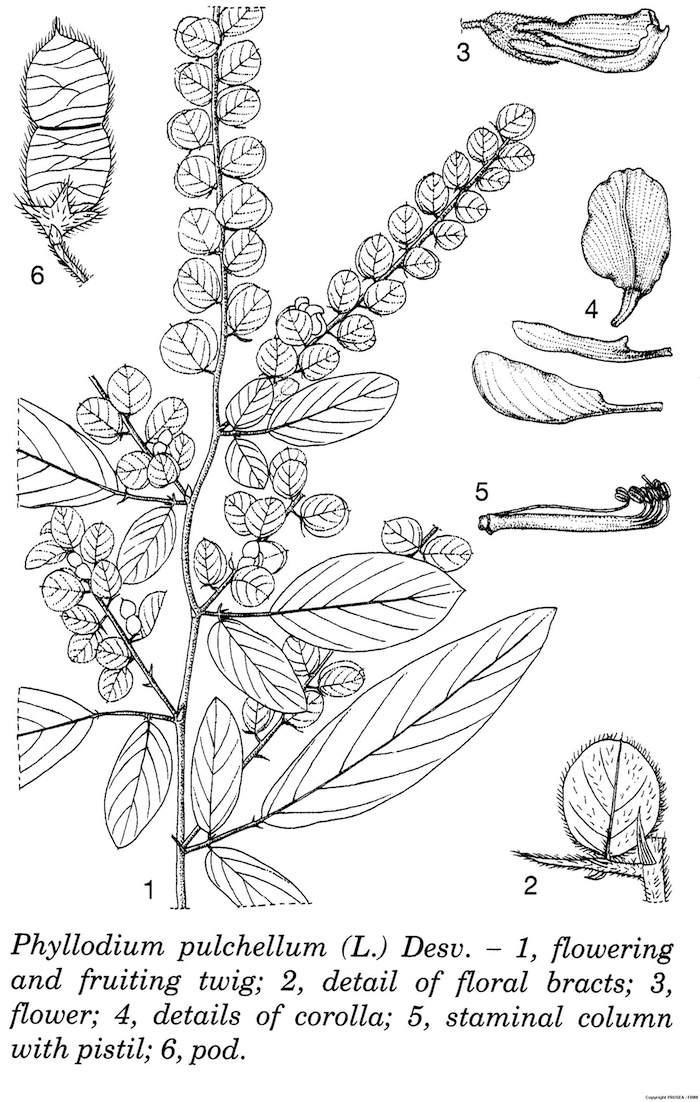Phyllodium pulchellum (L.) Desv.
Family
Leguminosae
Synonyms
Hedysarum pulchellum L., Desmodium pulchellum (L.) Benth.
Vernacular Names
|
Malaysia |
Serengan kechil (Peninsular). |
|
Indonesia |
Apa-apa, apa-apa sapi, ketipes (Javanese). |
|
Philippines |
Gaan-gaan (Sulu), kalaikai (Cebu), payang-payang (Tagalog). |
|
Cambodia |
âng-prôm, praè kraôy. |
|
Laos |
Kéd linz no:yz (Vientiane). |
|
Thailand |
Klet plaa chon, yaa song plong (Central), yaa klet lin (Northern, Peninsular). |
|
Vietnam |
Chu[oox]i ti[eef]n, d[oof]ng ti[eef]n. |
Geographical Distributions
Phyllodium pulchellum is distributed from India, Sri Lanka, southern China, Taiwan and the Ryukyu Islands throughout Southeast Asia, northern Australia and the Solomon Islands.
Description
Phyllodium pulchellum is a shrub that can grow up to 2.5 m tall. Its branches are slender, cylindrical and pubescent.
The leaves are 3-foliolate, with petiole 6-10 mm long, narrowly triangular stipules, measuring 6-8 mm x 2-3 mm, with rachis 10-20 mm long, with ovate terminal leaflet, elliptical or obovate and measures (2.5-)6-9 (-17) cm x (1.5-)3-5(-7) cm. The leaf base is obtuse or rounded, emarginate to acuminate at apex and with shallowly undulate margin. The lateral leaflets are similar, measure (1-)3-5(-8) cm x (1-)2-3(-5) cm and asymmetrical at base.
The raceme is 7-55 cm long, and composed of 5-6-flowered fascicles. The lateral leaflets of bracts are orbicular. They measure 8-15 mm x 7-13 mm. The petal is white or pale yellow, standard obovate, measures 5-6 mm x 3-4 mm and with 6-7 mm long pistil.
The pods are oblong, measure 7-8(-12) mm x 3-5 mm, sparsely hairy, reticulate-veined and (1-)2(-3)-articled. The articles are 3-4 mm long, suborbicular or quadrangular.
The seed is transversely elliptical or suborbicular, and measures 2 mm x 2.2-2.8 mm.
Ecology / Cultivation
Phyllodium pulchellum is found in teak forests, thickets, dry grassy fields, and sometimes along watercourses up to 900(-1600) m altitude.
Line Drawing / Photograph
References
-
Plant Resources of South-East Asia No.12(2): Medicinal and poisonous plants 2.


